 W
WThe American Encaustic Tiling Company was founded in Zanesville, Ohio, in 1875. Their tiles were intended to compete with the English tiles that were selling in the United States for use in fireplaces and other architectural locations. The first glazed tiles were made in 1880 and embossed tiles were made in 1881. By 1890, they were the largest tile company in the world, and the small town of Zanesville nearly tripled in size over a thirty year period as more people found work with the company. The firm closed in 1935 and was then reopened in 1937 as the Shawnee Pottery.
 W
WBlue Ridge is a brand and range of American tableware (dishware) manufactured by Southern Potteries Incorporated from the 1930s until 1957. Well known in their day for their underglaze decoration and colorful patterns, Blue Ridge pieces are now popular items with collectors of antique dishware. The underglaze technique made the decorations more durable, and while basic patterns were reused consistently, the fact that each piece was hand-painted means that no two pieces are exactly alike.
 W
WSascha Brastoff was an iconic mid century designer who had a ceramics studio.
 W
WBuffalo China, Inc., formerly known as Buffalo Pottery, was a company founded in 1901 in Buffalo, New York as a manufacturer of semi-vitreous, and later vitreous, china. Prior to its acquisition by Oneida Ltd. in 1983, the company was one of the largest manufacturers of commercial chinaware in the United States.
 W
WBybee Pottery, was a 200-year-old pottery company based in Bybee, a community in Madison County, Kentucky, USA. It was founded in 1809 by Webster Cornelison and members of the same Cornelison family continued to make and sell pottery until 2011. Bybee Pottery sold a wide variety of products and encouraged customers to interact with the artisans and tour the building that had survived six generations and the Civil War.
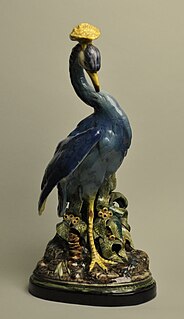 W
WCalifornia pottery includes industrial, commercial, and decorative pottery produced in the Northern California and Southern California regions of the U.S. state of California. Production includes brick, sewer pipe, architectural terra cotta, tile, garden ware, tableware, kitchenware, art ware, figurines, giftware, and ceramics for industrial use. Ceramics include terra cotta, earthenware, porcelain, and stoneware products.
 W
WCatalina Pottery is the commonly used name for Catalina Clay Products, a division of the Santa Catalina Island Company, which produced brick, tile, tableware and decorative pottery on Santa Catalina Island, California. Catalina Clay Products was founded in 1927. Gladding, McBean & Co. acquired all of the assets of the company in 1937 and moved all production to its Franciscan dinnerware division in Los Angeles.
 W
WCemar Clay Products was a California pottery operating between 1935 and 1955. Cemar's art pottery products, including tableware, are sought-after collectables today.
 W
WCeradyne, Incorporated was a wholly owned subsidiary of 3M based in the United States. Ceradyne, Inc. is a manufacturer of advanced ceramic systems and components and involved in many technical industries including nuclear power, oil and gas, solar energy, automotive, and defense. It is traded on the NASDAQ Stock Market.
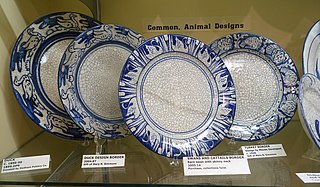 W
WDedham Pottery was an American art pottery company opened by the Robertson Family in Dedham, Massachusetts during the American arts & crafts movement that operated between 1896 and 1943. It was known for its high-fire stoneware characterized by a controlled and very fine crackle glaze with thick cobalt border designs. The Chelsea Keramic Art Works (1872–1889) and "Chelsea Pottery U.S." were earlier companies of the family.
 W
WCoorsTek, Inc. is a privately owned manufacturer of technical ceramics for aerospace, automotive, chemical, electronics, medical, metallurgical, oil and gas, semiconductor and many other industries. CoorsTek headquarters and primary factories are located in Golden, Colorado, USA, near the foothills west of Denver. The company is wholly owned by Keystone Holdings LLC, a trust of the Coors family. John K. Coors, a great-grandson of founder and brewing magnate Adolph Coors, Sr., and the fifth and youngest son of longtime chairman and president Joseph Coors, retired as president and chairman in January 2020 after 22 years at the helm.
 W
WBybee Pottery, historically known also as Cornelison Pottery, is a historic industrial facility in Bybee, Kentucky, United States. Located in a vernacular structure with the appearance of a barn, Cornelison is among the oldest pottery manufacturers west of the Appalachian Mountains still in operation. The facility now uses a modern kiln.
 W
WCorning Incorporated is an American multinational technology company that specializes in specialty glass, ceramics, and related materials and technologies including advanced optics, primarily for industrial and scientific applications. The company was named Corning Glass Works until 1989. Corning divested its consumer product lines in 1998 by selling the Corning Consumer Products Company subsidiary to Borden, but still holds an interest of about 8 percent.
 W
WDepartment 56 is a U.S. manufacturer of holiday collectibles, ornaments and giftware, known for its lit Christmas village collections and Snowbabies collection. It is owned by Enesco and based in Eden Prairie, Minnesota.
 W
WFiesta is a line of ceramic glazed dinnerware manufactured and marketed by the Homer Laughlin China Company of Newell, West Virginia since its introduction in 1936, with a hiatus from 1973 to 1985. Fiesta is noted for its Art Deco styling featuring concentric circles—and its range of solid colors.
 W
WFranciscan Ceramics are ceramic tableware and tile products produced by Gladding, McBean & Co. in Los Angeles, California, from 1934–1962, International Pipe and Ceramics (Interpace) from 1962–1979, and Wedgwood from 1979-1983. Wedgwood closed the Los Angeles plant, and moved the production of dinnerware to England in 1983. Waterford Glass Group plc purchased Wedgwood in 1986, becoming Waterford Wedgwood. KPS Capital Partners acquired all of the holdings of Waterford Wedgwood in 2009. The Franciscan brand became part of a group of companies known as WWRD, an acronym for "Wedgwood Waterford Royal Doulton." WWRD continues to produce the Franciscan patterns Desert Rose and Apple.
 W
WFrankoma Pottery is an American pottery company located in Sapulpa, Oklahoma. The company is widely known for its sculptures and dinnerware although the company made many other products including figurines, trivets, and vases. All Frankoma pottery is made in the U.S. from locally dug clay.
 W
WGladding, McBean is a ceramics company located in Lincoln, California. It is one of the oldest companies in California, a pioneer in ceramics technology, and a company which has "contributed immeasurably" to the state's industrialization. During the heyday of architectural terra cotta, the company "dominated the industry in California and the Far West."
 W
WThe Gorham Manufacturing Company is one of the largest American manufacturers of sterling and silverplate and a foundry for bronze sculpture.
 W
WThe Hall China Company is an American ceramics manufacturer located in East Liverpool, Ohio, United States, known for pioneering the single-fire glazing process.
 W
WHaviland & Co. is a manufacturer of Limoges porcelain in France, begun in the 1840s by the American Haviland family, importers of porcelain to the US, which has always been the main market. Its finest period is generally accepted to be the late 19th century, when it tracked wider artistic styles in innovative designs in porcelain, as well as stoneware and sometimes other ceramics.
 W
WHeath Ceramics is an American company that designs, manufactures, and retails goods for tabletop and home, and is best known for handcrafted ceramic tableware and architectural tile in distinctive glazes.
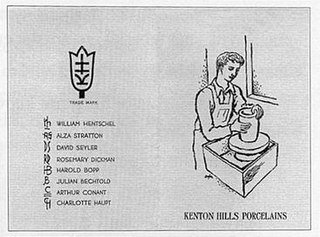 W
WKenton Hills Porcelains were high-fired soft paste porcelain products manufactured by Kenton Hills Porcelains, Inc. Ceramics were produced from 1940 to 1943 in Erlanger, Kentucky, with sales continuing to 1944. All ceramic products were made from native clays. Products include vases, bookends, figurines, lamp bases, and flowerpots.
 W
WLenox Corporation is an American manufacturing company that sells tableware, giftware and collectible products under the Lenox, Dansk, Reed & Barton, and Gorham brands. For most of the 20th century, it was the most prestigious American maker of tableware, as well as making decorative pieces. Several china services were commissioned for the White House. By 2020, it was the last significant manufacturer of bone china in the United States, until the COVID-19 pandemic forced the closure of the company's only remaining American factory.
 W
WLotus Ware is a type of porcelain produced from approximately 1892 to 1896 at the Knowles, Taylor & Knowles (KT&K) pottery of East Liverpool, Ohio, United States. It is thought that the name may have originated from a comment made by the owner, Isaac Knowles, asserting that the glaze of the pieces resembled the glossy sheen of lotus blossom petals. These ceramics were ranked at the top at the 1893 World's Fair in Chicago, where they won every prize for fine porcelain. It is generally considered to be the finest porcelain ever produced in the United States.
 W
WLouisville Stoneware, previously known as Louisville Pottery, is located in the Highlands section of Louisville, Kentucky. Founded in 1815, making it one of the oldest stoneware companies in the United States, it creates fanciful stoneware that is nationally renowned. It specializes in decorating its pottery with Kentucky Derby and Christmas themes, but it has other themes as well: Noah's Ark, Primrose, and Pear being examples. They can also create personalized items. Besides pottery, they have made bird baths and bird feeders.
 W
WJ. & J. G. Low Art Tile Works, also known as J. & J. F. Low Art Tile Works or Low Art Tile Works, was an American manufacturer of decorative ceramic tiles, active from 1877-1902 in Chelsea, Massachusetts.
 W
WMcCoy is a brand of pottery that was produced in the United States in the early 20th century. It is probably the most collected pottery in the nation. Starting in 1848 by J.W.McCoy Stoneware company, they established the Nelson McCoy Sanitary Stoneware Company in 1910. They continued on almost into 1991, but had to close down due to declining profits.
 W
WMetlox Pottery, strictly speaking Metlox Manufacturing Company, was a manufacturer of ceramic housewares, located at 1200 Morningside Drive, Manhattan Beach, California. The pottery factory closed in 1989.
 W
WMorganville Pottery Factory Site is an archeological site located at Morganville in Genesee County, New York. It was the location of a factory that produced ceramics and tile from 1829 until the end of the 19th century.
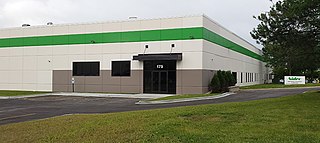 W
WNIDEC-SHIMPO America Corporation is the U.S. subsidiary of Japan-based NIDEC-SHIMPO Corporation. Located in Glendale Heights, IL, NIDEC-SHIMPO America Corporation is composed of Shimpo Drives, Shimpo Instruments and Shimpo Ceramics.
 W
WPacific Clay Products, founded 1892, was created by the merger of several Southern California potteries. The company began producing utilitarian pottery in the 1920s, and introduced solid color earthenware dinnerware in 1932. The primary site for the production of ceramic tableware, kitchenware, and art ware was based in the company's Lincoln Heights, Los Angeles plant at 306 West Avenue 26. Pacific Clay ceased production of ceramic dinnerware and art ware in 1942. After 1942, Pacific Clay produced sewer tile and brick. The company ceased production of sewer tile in 1997. The company continues to produce brick products in Lake Elsinore, California. The company has been owned by David H. Murdock since 1973.
 W
WPerth Amboy Terra Cotta Company of Perth Amboy, New Jersey, was a late-nineteenth- and early twentieth-century brickworks, known for the manufacture of many prominent and unique architectural terracotta elements.
 W
WPfaltzgraff is an American kitchenware brand that sells quality dinnerware, serveware, drinkware and flatware.
 W
WNiloak is a line of American art pottery produced by the Eagle Pottery Company of Benton, Arkansas. Eagle was founded by Charles Dean Hyten and his brothers in the 1890s and was the largest pottery-ware business in the Benton area by 1904. The name is the reverse spelling of kaolin the main ingredient of porcelain.
 W
WThe R.F. Outen Pottery is a historic industrial facility at 430 Jefferson Street in Matthews, North Carolina. The roughly 1.5-acre (0.61 ha) property includes a brick kiln, and a concrete-block workshop, both built about 1952 by Rufus Outen. Abutting the workshop to the north is a metal roofed and sided shed, in which Outen stored clay. Outen, trained by his father at the Matthews Pottery, produced utilitarian folk pottery on these premises until his retirement in 1976. The facility is a well-preserved example of a complete mid-20th century folk pottery works.
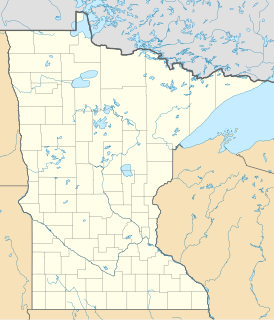 W
WRed Wing pottery refers to American stoneware, pottery, or dinnerware items made by a company initially set up in Red Wing, Minnesota, in 1861 by German immigrant John Paul, which changed its names several times until finally settling on Red Wing Potteries, Inc. in 1936. The pottery factory that started in 1861 continues to the present day under the names of Red Wing Pottery and Red Wing Stoneware. There was a respite in production when Red Wing Pottery Sales, Inc. had a strike in 1967 causing them to temporarily cease trading. The company still makes both zinc/Bristol glazed products as well as salt-glazed, hand-thrown, kiln fired items.
 W
WThe Shawnee Pottery Company was a manufacturing company best known for producing Corn King pottery and the Pennsylvania Dutch lines of pottery. Both of these lines are considered to be highly collectible.
 W
WSolon and Schemmel Tile Company (S&S) was a tile pottery business in San Jose, California from 1920 – 1936. The company's tiles adorn Steinhart Aquarium in San Francisco and the Hearst Castle in San Simeon, California. Other projects included tiles for the Orpheum and Junior Orpheum theaters in Los Angeles, the Mark Hopkins Hotel, Central Classroom Building at San Jose State University, Y.M.C.A. buildings in San Diego and Honolulu, the Dollar Steamship Line building at Portland, Oregon, the Oakland and Berkeley war memorials. and the Frank P. Williams House in Sacramento The business was eventually subsumed into Stonelight Tile and is one of the only major California tile manufacturers from the 1920s to have survived to the present.
 W
WStrasburg Stone and Earthenware Manufacturing Company, also known as the Strasburg Museum, Steam Pottery, and Southern Railroad Station, is a historic factory building located at Strasburg, Shenandoah County, Virginia. It was built in 1891, and is a two-story, 10 bay brick building originally constructed for the Strasburg Stone and Earthenware Manufacturing Company to make earthenware. It was converted to railroad use in 1913, at which time a one-story pent roof was added. The building is covered with a slate-clad hipped roof surmounted by a hipped monitor. The building served as a station and depot for the Southern Railroad.
 W
WSyracuse China, located in Lyncourt, New York, was a manufacturer of fine china. Founded in 1871 as Onondaga Pottery Company in the town of Geddes, the company initially produced earthenware; in the late 19th century, O.P.Co., began producing fine china, for which it found a strong market particularly in hotels, restaurants, and railroad dining cars. The company closed in 2009.
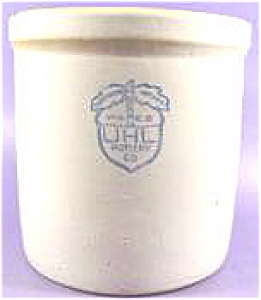 W
WUhl Pottery refers to a collection of items produced by the Uhl Pottery Company. Originally based in Evansville, Indiana in the late 19th century, the company moved to Huntingburg, Indiana where it operated until closure in the 1940s. Items range from everyday household crocks, jugs, and vessels, to exotic collector miniatures
 W
WThe Union Porcelain Works was both the first and the foremost American manufacturer of porcelain wares from c. 1862 to c. 1922, with its factory located in Greenpoint, now a part of Brooklyn, New York.
 W
WVernon Kilns was an American ceramic company in Vernon, California. In July 1931, Faye G. Bennison purchased the former Poxon China pottery renaming the company Vernon Kilns. Poxon China was located at 2300 East 52nd Street. Vernon produced ceramic tableware, art ware, giftware, and figurines. The company closed its doors in 1958.
 W
WWilliamsburg Pottery Factory is a large, multi-structure retail outlet store located in Lightfoot, Virginia, about 6 miles (9.7 km) west of Williamsburg. It was founded in 1938 by James E. Maloney as a small pottery workshop. The Williamsburg Pottery Factory now markets itself as one of Virginia's largest tourist attractions. Referred to by the locals as "the Pottery", the 200-acre (0.81 km2) attraction offers a selection of locally handmade articles, as well as imports from 20 countries. Williamsburg Pottery was once famous for its "bare bones" appearance; however, it underwent a multimillion-dollar redevelopment that reshaped its look in the spring of 2012.